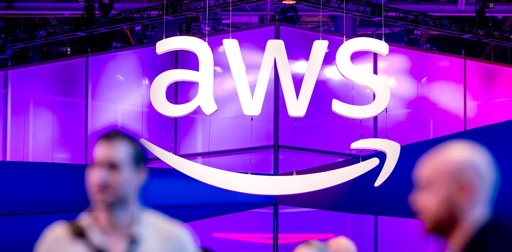Almost like the internet shouldn’t be put in such big hubs, one might say it shouldn’t be so centralised but should still connect to each other, in some sort of a federation, perhaps?
Look at all of us, wildly ahead of the curve!! We are the future!
But for real, the intense concentration of information into what’s ultimately little tiny fail points can’t ever end well. We’ve gotten a few of these wakeup calls now. In my country a few years ago, one of the main cellular networks suddenly went down, and it dragged down all of our payment systems as an added bonus, plus 911 coverage and all sorts of other failures. That afternoon you couldn’t get money depending on who your bank was, you almost certainly couldn’t make a payment anywhere, couldn’t call for help, etc. It ultimately only lasted a few hours, but it put the politicians in a frenzy. Of course nothing really concrete has been done about it either.
A lot of countries are promoting cash again. If the infrastructure can have problems like that all by itself imagine what it would be like if there was a coordinated and deliberate strike on the server centers, towers and satellites and I’m not just talking about hackers. Bombers will fuck your shit up permanently.
I’m even starting to feel like a crotchety old man by wondering if I should be purchasing some physical precious metals.
Everyone says this every time us-east-1 goes down, in 3 months it’ll be forgotten.
And in 2 years, it will be back in the headlines! Because us-east-1 always goes down, and AWS and its customers are destined to repeat the same mistakes, and reporters will rinse & repeat.
Honestly - the worst part was that the AWS web console was affected. Even companies & teams that have multi-region failover and DR plans struggle when they can’t use the console.
AWS seems to have a helluva lot of failure points too. I’m not an IT expert, but I’m pretty sure this is far from the first time this has happened, correct?
They had a big us-east-1 S3 outage back in ~2018 (docker hub went down then too), and another us-east-1 DynamoDB outage ~3 years ago…
On the whole, they do an amazing job. But when they have a big issue, it will be something tricky and painful … they tackled the low hanging fruit years ago.
The article is very confusingly written. Maybe AI? It’s conflating “cloud” hosting (AWS, etc) with renting hosting infrastructure (which includes the cloud, but also things we don’t refer to as “cloud”, like dedicated servers, VPS services, and shared hosting).
This paragraph makes it sound like Amazon were the first company to allow renting their servers:
As companies such as Amazon matured in their own ability to offer what’s known as “software as a service” over the web, they started to offer others the ability to rent their virtual servers for a cost as well.
but Linux-based virtual servers have been a thing for 20+ years or so, first with Linux-VServer then with OpenVZ. Shared servers in general date back to the mainframes of the 60s and 70s.
Similarly, this paragraph makes it sound like the only two choices are either to use “the cloud” or to run your own data center:
Cloud computing enables a pay-as-you-go model similar to a utility bill, rather than the huge upfront investment required to purchase, operate and manage your own data centre.
but Linux-based virtual servers have been a thing for 20+ years or so, first with Linux-VServer then with OpenVZ. Shared servers in general date back to the mainframes of the 60s and 70s.
yeah, you do know journalists sometime do simplify things, either because the author itself created simplified version of reality in their head, or they understand the complexity, but decided to simplify it to get the point across to the reader, right?
They should say at least one thing that’s unique to the cloud, though.
there is no cloud, it is always someone else’s computer. the only difference is “it is successful buzzword”
“cloud” still mostly means services like AWS and Google Cloud. People don’t refer to Hetzner dedicated servers as “cloud” for example.
That’s definitely dependent on the company. Every company I’ve worked for that has their own data centers refers to any service outside their direct hardware control as cloud infra. Co-lo is the only shared hosting model I’ve never seen considered cloud.
The widespread conflation of IaaS/PaaS with cloud is due to AWS/ GCP/ Azure marketing. VPSes used to be considered cloud, prior to IaaS and PaaS existing, because cloud was anything that was not on-prem.
Hence the buzzword part of my comment
It also refers to a computer scientist that explains the outage yet never references this scientist at all.
Clarissa, clearly.
sits back down in rocking chair
deleted by creator
The article is written by the computer scientist.
Ah yeah, that makes sense. 😄
a1 slop
cool. after ai cancer, we also have the “everythng is ai” cancer…
here’s the real author byline: https://theconversation.com/profiles/jongkil-jay-jeong-943442







